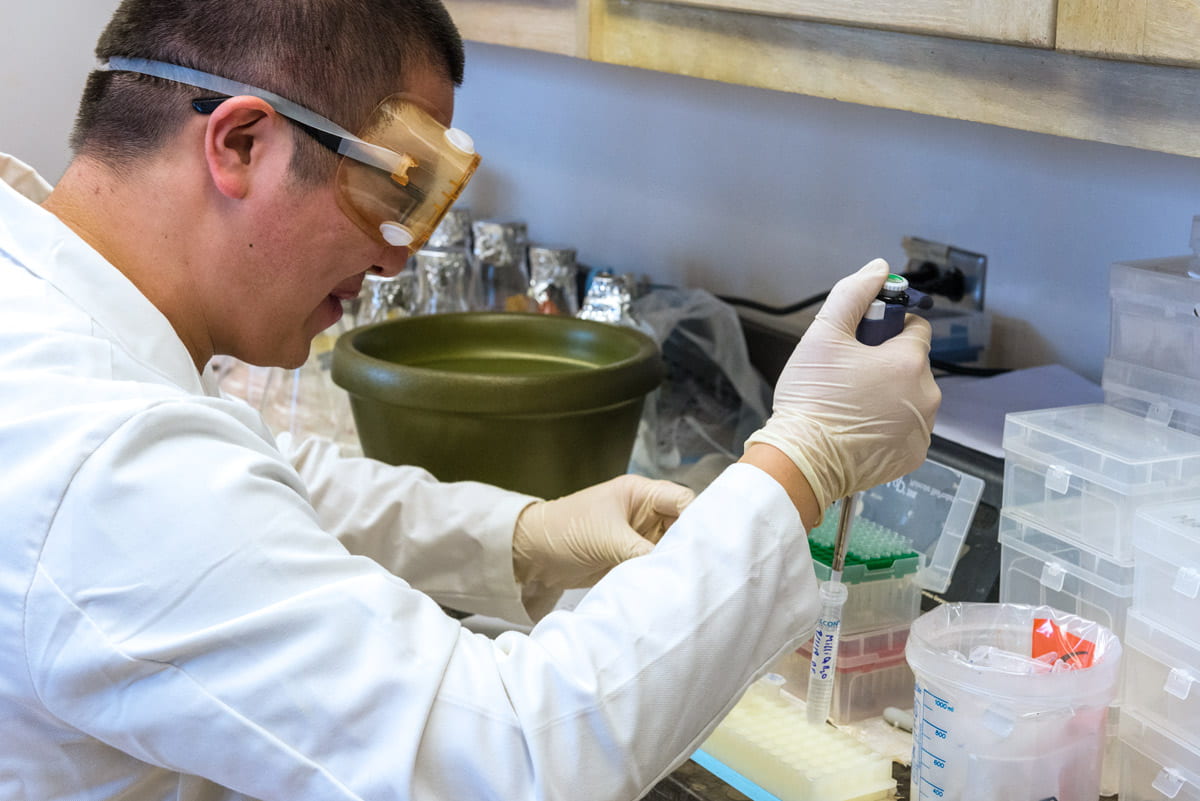Waiting on medical test results can be unpleasant, and the expansion of San José State’s Clinical Laboratory Scientist Training program could reduce those painful wait times. By building new hospital partnerships, the program serves as a crucial component in California’s response to the COVID-19 pandemic.
From Bakersfield to Chico, from Oroville to Newport Beach—across the state, 38 hospitals, laboratories and medical centers are now state-approved SJSU affiliates, partnering with the university to train clinical laboratory scientists and get them to work where they are desperately needed.
“California has a shortage of clinical laboratory scientists,” said Michael Bowling, director of the Clinical Laboratory Scientist (CLS) and Clinical Genetic Molecular Biology Scientist (CGMBS) Training programs. “People are coming to us.”
SJSU is the largest training program in California in number of hospital affiliates, many of which serve rural populations. At those affiliates, the CLS trainees take SJSU coursework remotely and train in laboratories throughout the state. Within one year, they can earn a state CLS license and get to work, easing the laboratory staffing crisis.
CLSs examine the sample taken at your medical facility after you have blood drawn, for example. “They’re the ones running the tests. They are licensed by the State of California to perform the highest complexity testing,” said Bowling. That might mean differentiating types of cancer cells or identifying COVID-19.
Together, Bowling and longtime program coordinator Sharlene Washington run the program. “We send 50 licensed CLSs into the workforce every year,” Bowling said, “which is especially important when qualified hospital professionals are needed more than ever.” Since Bowling began as program director in 2018, the program has added five new affiliates—which means arranging contracts, insurance, state approval and many other complex, time-intensive challenges. “We’re really proud of that,” he said.
Students who are accepted to the program do their SJSU coursework remotely on Mondays, then train the rest of the week on site at their local affiliate laboratory or medical center. Such locations include Adventist Health Bakersfield, Natividad Medical Center in Salinas, El Camino Hospital in Mountain View, and Santa Clara Valley Medical Center in San José. Bowling said the course instructors are also practicing clinical laboratory scientists from all over the Bay Area, experts in the latest techniques and methods.
Each six-month cycle the SJSU program receives about 140 applications. A cohort of about 25 accepted students will then study and train for 52 consecutive weeks to meet State of California requirements. Students who complete the graduate level program may then obtain national certification from the American Society for Clinical Pathology and a California Clinical Laboratory Scientist license.
“It’s quite rigorous,” Bowling said. To become licensed, CLS trainees must master every laboratory in the hospital—microbiology, hematology, chemistry, immunology. “They’ll have a basic competency to perform any of the tests a doctor may order,” he said.
At orientation, Bowling tells new CLS trainees, “If you love working in a laboratory, if you love science—that’s enough, as it is. But it’s such a bonus that we get to help people too. And with starting salaries of $50 an hour, CLS is a good career choice.”
“What’s unique about our program is that we have a lot of remote affiliates,” Bowling said. “Hospitals all over the state have staffing shortages, so it is appealing to both urban and rural hospitals that students can take classes online while training anywhere in the state. Hospital administrators are reaching out to us to train more students right now during this crisis.” The result? More opportunities for students, more university revenue, and training more clinical laboratory scientists for the workforce.
Bowling said the CLS program was scaling up while other programs, hindered by the pandemic and campus closures, had suspended training. “We are still trucking along and actually expanding during the COVID-19 crisis,” he said. “Our students are working with our hospital affiliates’ doctors and other laboratory professionals to get patients diagnosed and treated, and it is very rewarding to be part of this great work.”


